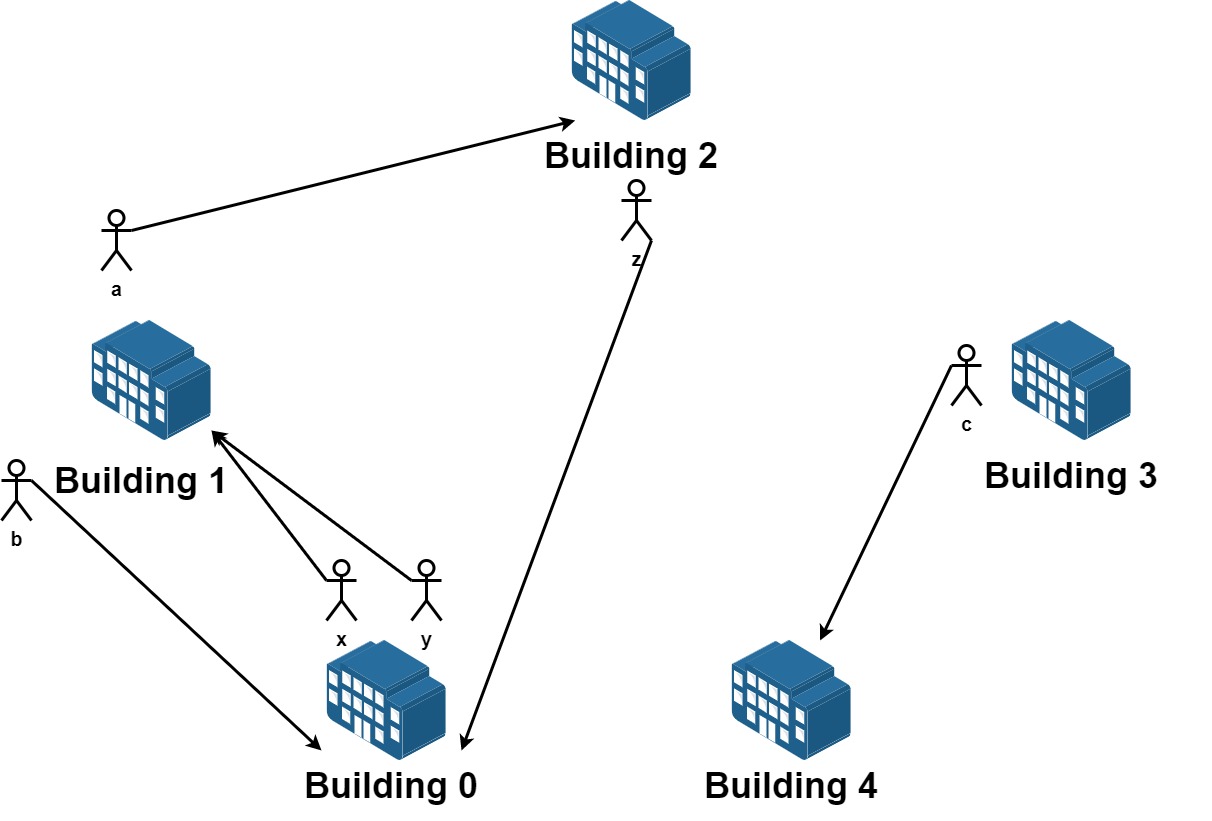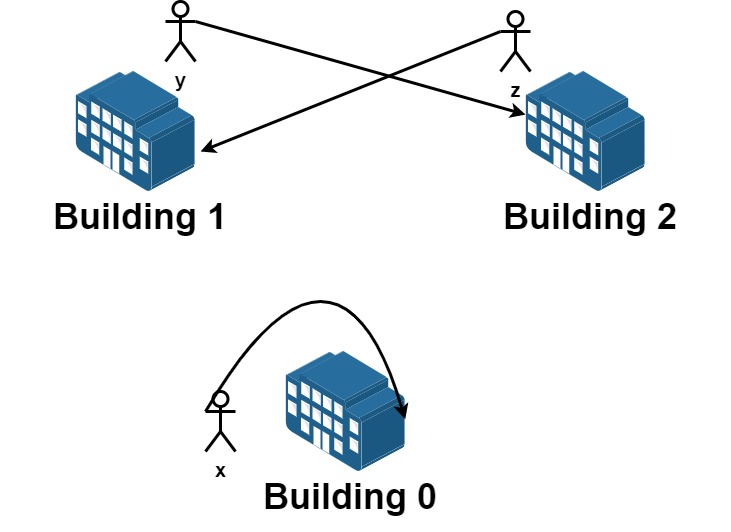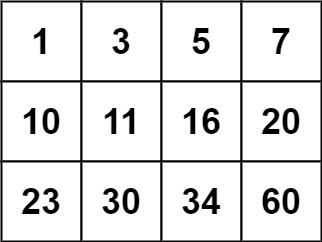2020-10-16 Daily-Challenge
Today I have done Maximum Number of Achievable Transfer Requests on leetcode and leetcode's October LeetCoding Challenge with cpp.
submission of last LeetCoding Challenge seems fail due to unknown reason... so sad
Maximum Number of Achievable Transfer Requests
Description
We have n buildings numbered from 0 to n - 1. Each building has a number of employees. It's transfer season, and some employees want to change the building they reside in.
You are given an array requests where requests[i] = [fromi, toi] represents an employee's request to transfer from building fromi to building toi.
All buildings are full, so a list of requests is achievable only if for each building, the net change in employee transfers is zero. This means the number of employees leaving is equal to the number of employees moving in. For example if n = 3 and two employees are leaving building 0, one is leaving building 1, and one is leaving building 2, there should be two employees moving to building 0, one employee moving to building 1, and one employee moving to building 2.
Return the maximum number of achievable requests.
Example 1:

Input: n = 5, requests = [[0,1],[1,0],[0,1],[1,2],[2,0],[3,4]]
Output: 5
Explantion: Let's see the requests:
From building 0 we have employees x and y and both want to move to building 1.
From building 1 we have employees a and b and they want to move to buildings 2 and 0 respectively.
From building 2 we have employee z and they want to move to building 0.
From building 3 we have employee c and they want to move to building 4.
From building 4 we don't have any requests.
We can achieve the requests of users x and b by swapping their places.
We can achieve the requests of users y, a and z by swapping the places in the 3 buildings.
Example 2:

Input: n = 3, requests = [[0,0],[1,2],[2,1]]
Output: 3
Explantion: Let's see the requests:
From building 0 we have employee x and they want to stay in the same building 0.
From building 1 we have employee y and they want to move to building 2.
From building 2 we have employee z and they want to move to building 1.
We can achieve all the requests.
Example 3:
Input: n = 4, requests = [[0,3],[3,1],[1,2],[2,0]]
Output: 4
Constraints:
1 <= n <= 201 <= requests.length <= 16requests[i].length == 20 <= fromi, toi < n
Solution
simple enumeration
class Solution {
bool isOk(vector<vector<int>>& requests, vector<int>& trans, int bitmask) {
for(int i = 0; i < requests.size(); ++i) {
if(bitmask & (1 << i)) {
trans[requests[i][0]] += 1;
trans[requests[i][1]] -= 1;
}
}
for(int i = 0; i < trans.size(); ++i) {
if(trans[i] != 0) return false;
}
return true;
}
public:
int maximumRequests(int n, vector<vector<int>>& requests) {
int cur = requests.size();
vector<int> trans(n+1);
while(cur) {
for (int mask = (1<<cur) - 1, t; mask < 1 << requests.size(); mask = (t + 1) | (((~t & -~t) - 1) >> (__builtin_ctz(mask) + 1)) ) {
if(isOk(requests, trans, mask)) return cur;
fill(trans.begin(), trans.end(), 0);
t = mask | (mask - 1);
}
cur -= 1;
}
return 0;
}
};
October LeetCoding Challenge 16
Description
Search a 2D Matrix
Write an efficient algorithm that searches for a value in an m x n matrix. This matrix has the following properties:
- Integers in each row are sorted from left to right.
- The first integer of each row is greater than the last integer of the previous row.
Example 1:

Input: matrix = [[1,3,5,7],[10,11,16,20],[23,30,34,50]], target = 3
Output: true
Example 2:

Input: matrix = [[1,3,5,7],[10,11,16,20],[23,30,34,50]], target = 13
Output: false
Example 3:
Input: matrix = [], target = 0
Output: false
Constraints:
m == matrix.lengthn == matrix[i].length0 <= m, n <= 100-104 <= matrix[i][j], target <= 104
Solution
binary search with some additional operation
class Solution {
public:
bool searchMatrix(vector<vector<int>>& matrix, int target) {
if(!matrix.size() || !matrix[0].size()) return false;
int begin = 0, end = matrix[0].size()*matrix.size()-1, l=matrix[0].size();
while(begin < end) {
int mid = (begin + end)/2;
if(matrix[mid/l][mid%l] >= target) {
end = mid;
} else {
begin = mid+1;
}
}
return matrix[end/l][end%l]==target;
}
};